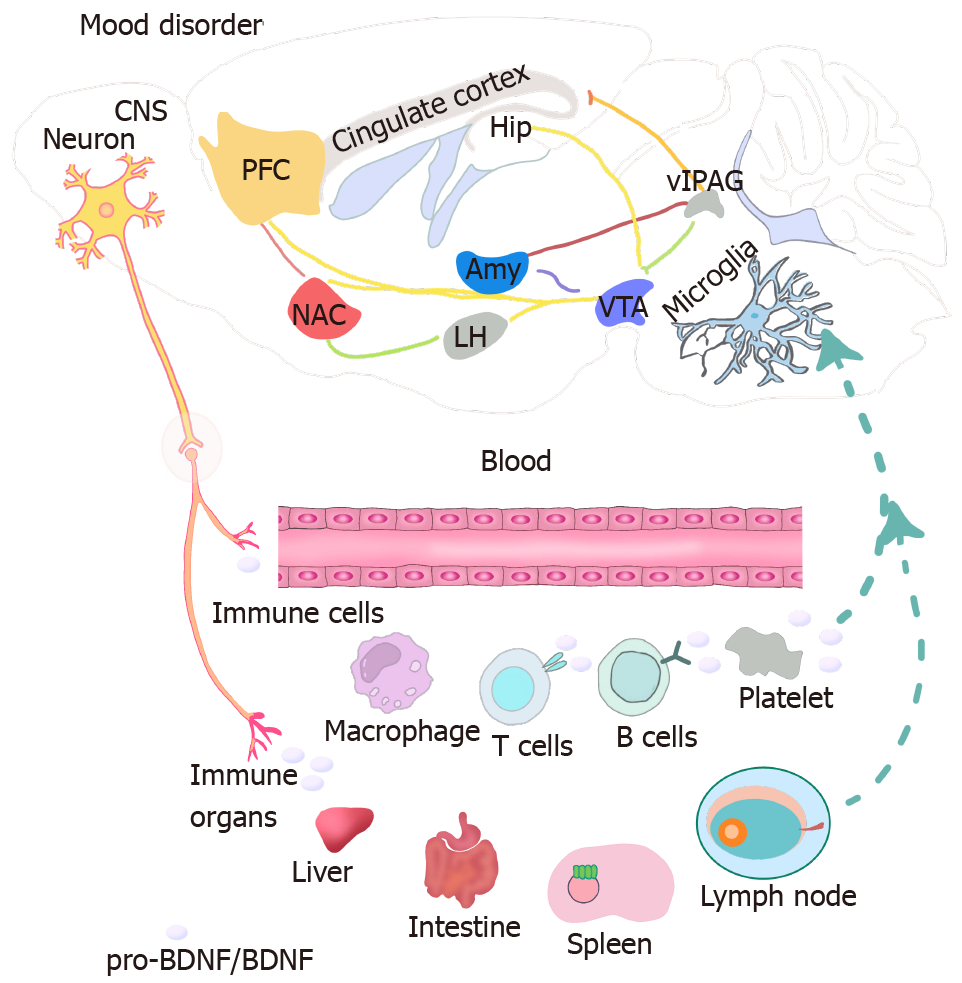Copyright
©The Author(s) 2022.
World J Psychiatry. Mar 19, 2022; 12(3): 379-392
Published online Mar 19, 2022. doi: 10.5498/wjp.v12.i3.379
Published online Mar 19, 2022. doi: 10.5498/wjp.v12.i3.379
Figure 2 Intracellular signaling of pro-BDNF/brain-derived neurotrophic factor in the nervous system.
Decreased levels of brain-derived neurotrophic factor (BDNF) are observed in most of the brain regions and contribute to the pathogenesis of mood disorders by interacting with different neurotransmitters. Pro-BDNF signaling is increased in the hippocampus and is implicated in anxiety-like behavior and depression. Moreover, there is an increase in pro-BDNF signaling in immune cells and this is correlated with disease activity in depression. Upregulated pro-BDNF signaling in immune cells may promote disease progression probably through interfering with the function of immune cells or directly acting on the neurons after being released from the microglia. Central nervous system dysfunction during mood disorders may also affect the immune functions and induce gastrointestinal immobility. CNS: Central nervous system; PFC: Prefrontal cortex; NAC: Nucleus accumbens; VTA: Ventral tegmental area; BDNF: Brain-derived neurotrophic factor; LH: Lateral hypothalamus.
- Citation: Zhao XP, Li H, Dai RP. Neuroimmune crosstalk through brain-derived neurotrophic factor and its precursor pro-BDNF: New insights into mood disorders. World J Psychiatry 2022; 12(3): 379-392
- URL: https://www.wjgnet.com/2220-3206/full/v12/i3/379.htm
- DOI: https://dx.doi.org/10.5498/wjp.v12.i3.379









